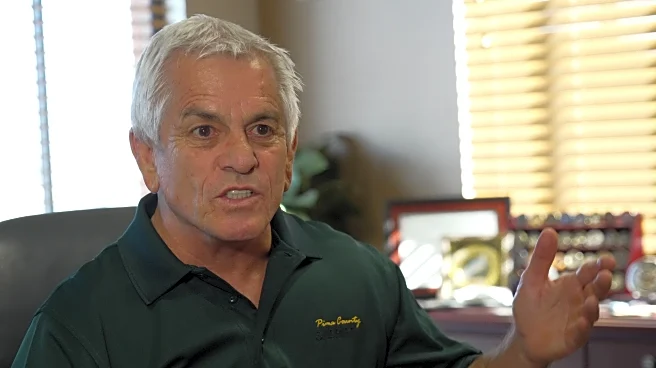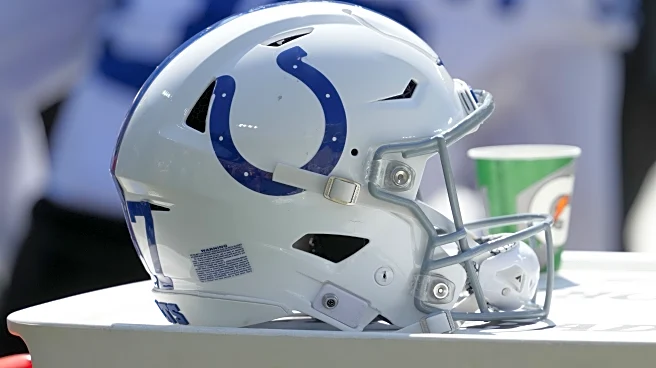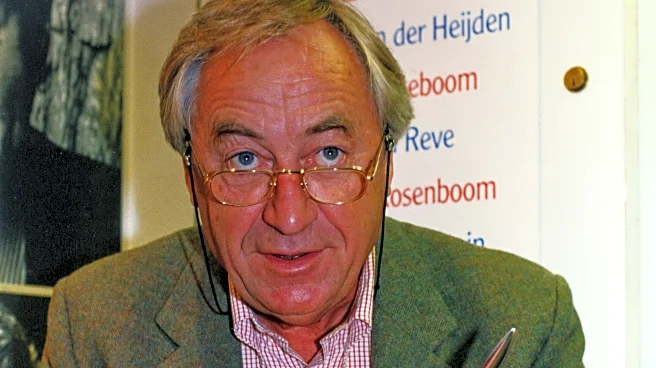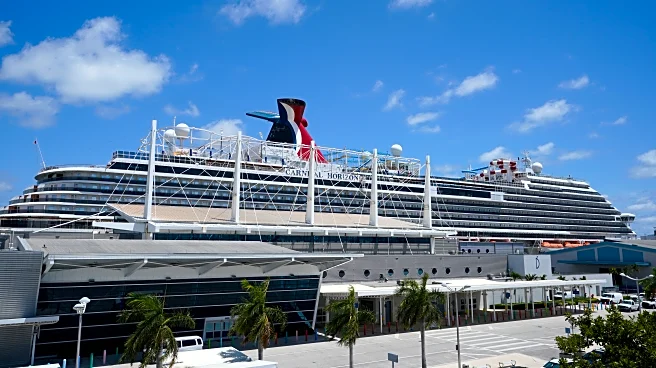What's Happening?
Venezuelan President Nicolás Maduro recently engaged in a public display of peace advocacy during a rally in Caracas, where he danced energetically and urged supporters to embrace a message of peace. This comes as the United States increases military
and political pressure on Venezuela, deploying warships and personnel in the Caribbean under the guise of counter-narcotics operations. Maduro's performance, which included singing John Lennon's 'Imagine' and promoting peace slogans, is seen as a defiant response to U.S. actions. The U.S. has accused Maduro's government of narcotics trafficking, leading to military strikes on vessels allegedly linked to such activities. In contrast, Venezuelan officials have rejected these claims, accusing the U.S. of attempting to destabilize the country.
Why It's Important?
The escalating tensions between the U.S. and Venezuela have significant implications for regional stability and international relations. The U.S. military presence in the Caribbean is one of the largest in recent years, highlighting the seriousness of the situation. The designation of the Cartel de los Soles as a foreign terrorist organization by the U.S. further intensifies diplomatic pressure on Maduro's government. This situation could lead to increased military confrontations and affect diplomatic relations between Venezuela and other Latin American countries, some of which support U.S. efforts while others condemn them. The ongoing conflict also impacts Venezuela's internal politics, as Maduro seeks to rally national support and maintain sovereignty against perceived external threats.
What's Next?
As U.S. naval operations continue, Maduro is likely to intensify his peace advocacy and symbolic messaging to bolster internal support and portray Venezuela as defending its sovereignty. The potential for expanded U.S. operations remains high, which could further destabilize the region and affect Venezuela's political future. Maduro's government may seek additional military support from allies like Russia, while Latin American countries may face pressure to choose sides in the conflict. The situation remains fluid, with diplomatic and military developments expected to unfold in the coming weeks.
Beyond the Headlines
The conflict between the U.S. and Venezuela raises broader questions about international law and the ethics of foreign intervention. The U.S. military actions, justified as counter-narcotics operations, are viewed by some as aggressive and unlawful, challenging norms of sovereignty and non-intervention. Additionally, the situation highlights the role of spectacle and media in political strategy, as Maduro uses public performances to shape perceptions and rally support. The long-term implications could include shifts in regional alliances and changes in how international conflicts are managed.


















